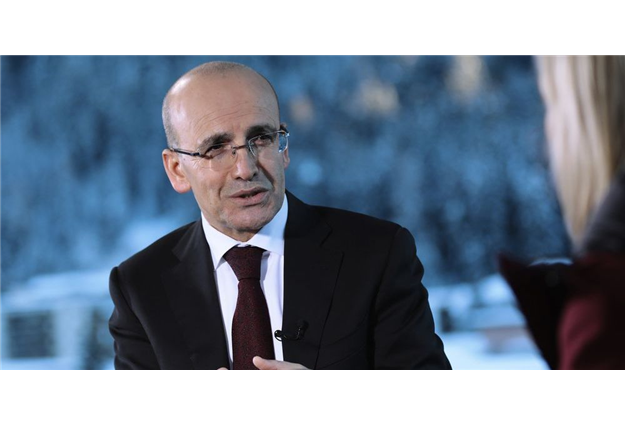
Turkey’s relationship with the European Union is in recovery and top economic policy makers are planning to meet at a summit in Brussels next month, Deputy Prime Minister Mehmet Simsek said.
Simsek will co-chair the December 7-8 meeting along with Jyrki Katainen, the European Commission's Vice President for Jobs, Growth, Investment and Competitiveness. EU commissioners for economic affairs and enlargement, Pierre Moscovici and Johannes Hahn, will also attend, the deputy prime minister told Bloomberg in Ankara on Thursday.
The meeting aims to usher in period of improvement in frayed ties with the EU, which Turkey wants to join, Simsek said. European leaders distanced themselves from Turkey in the aftermath of a 2016 coup attempt, which was followed by purges that have also led to dozens of journalists, human rights activists and European citizens being jailed. Ankara’s relations with countries including Germany and the Netherlands soured further this year when Turkish officials led by President Recep Tayyip Erdogan lashed out at European leaders and accused them of attacking Turkey for political gains before elections.
With the election cycle over in Europe, there’s now an opportunity to move past the political tension and make progress on subjects such as updating the terms of Turkey’s customs union with the bloc, Simsek said.
‘Anchored to Europe’
“The summit is going to send a very strong message that Turkey remains anchored to Europe and that Turkey-EU relations are on the mend,” he said. “We continue to believe that upgrading the customs union between Turkey and the EU is mutually beneficial, and we hope that we’ll be back on track with issues such as the customs union going forward.”
Simsek’s plans to engage the EU’s top officials in charge of economic issues and enlargement come amid a dense schedule of meetings with investors abroad. After meeting with “a few dozen” institutional fund managers and corporate executives in Kuwait and London recently, the deputy prime minister is planning meetings in Germany and Moscow in the near future.
“My sense is that investors’ interest in Turkey remains very strong,” Simsek said, citing as factors the economic recovery since last year’s failed coup attempt and policy visibility, including a “more orthodox” monetary policy aimed at bringing inflation down to single digits. “All policy levers are strongly employed to address Turkey’s structural problems, but also to make the Turkish economy more resilient to shocks,” he said.
Bloomberg